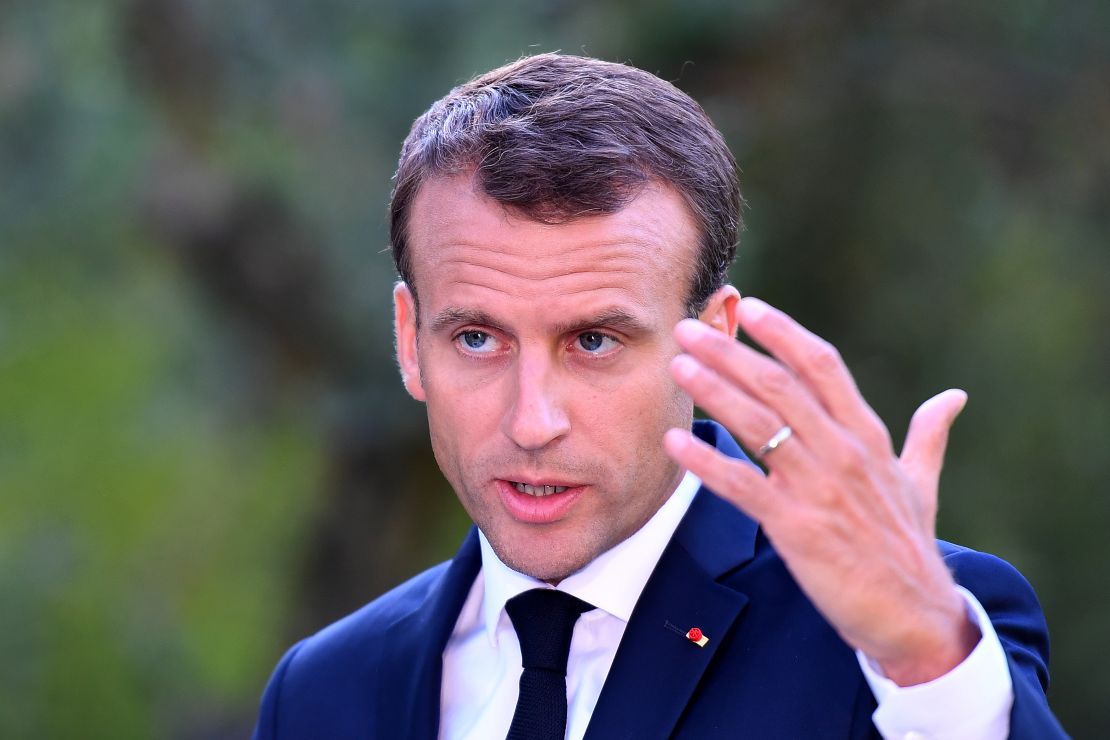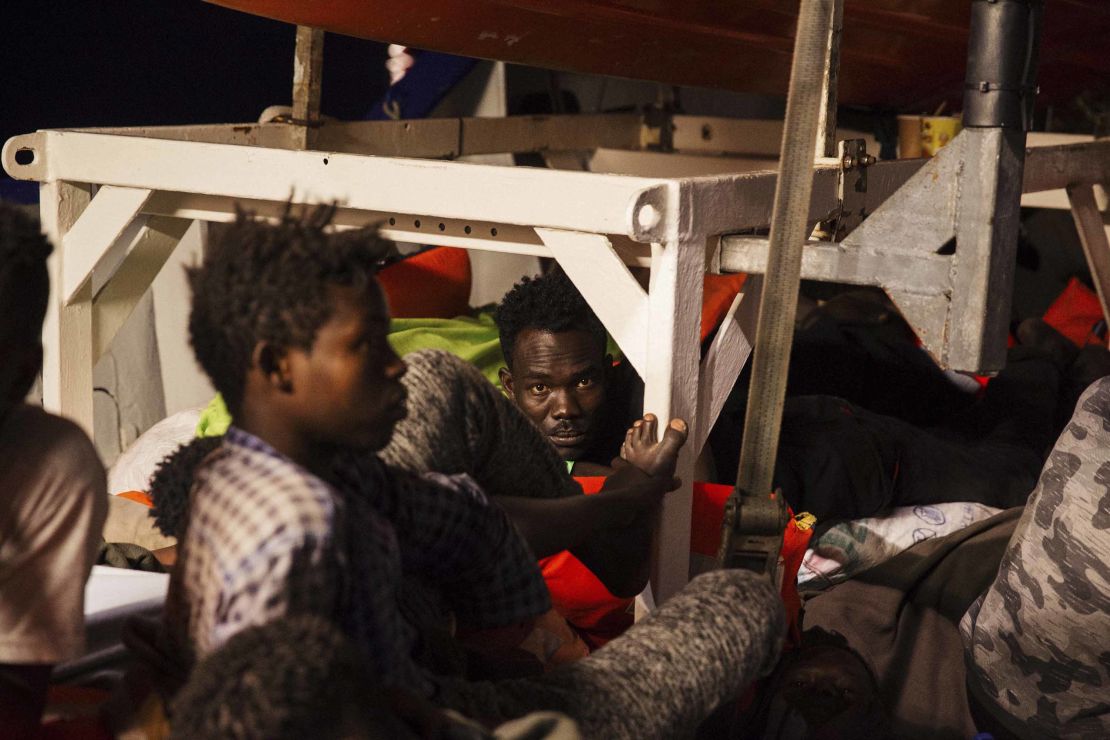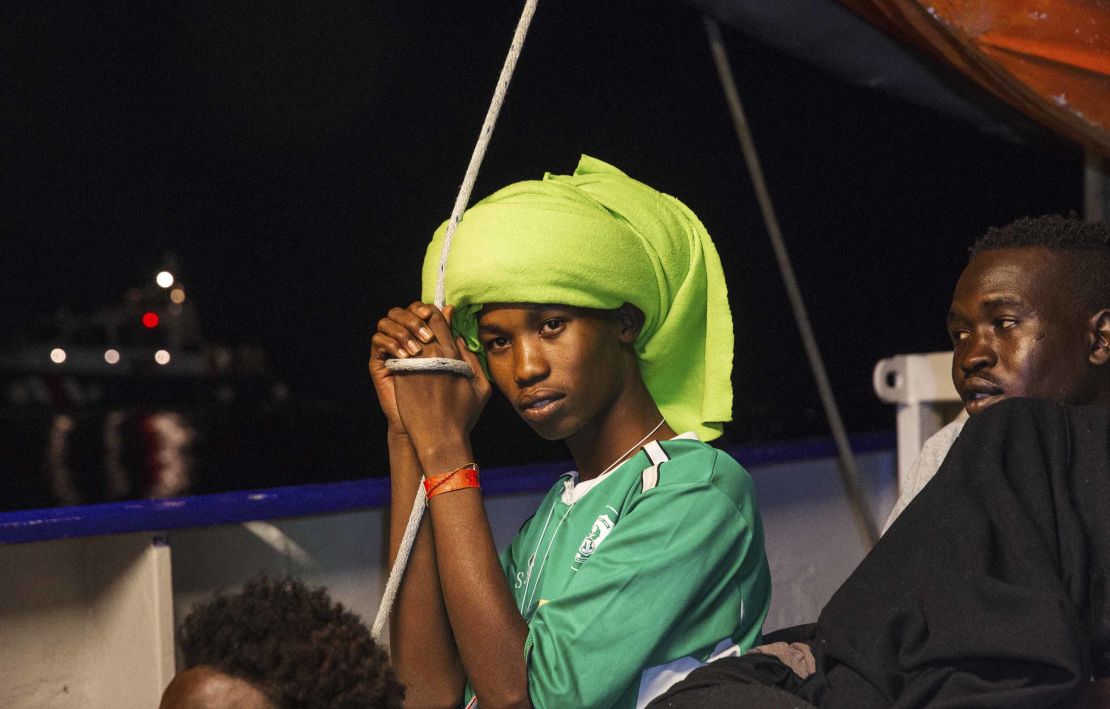A search-and-rescue ship stranded in the Mediterranean since Friday with 233 migrants on board will finally dock in Malta, Italian Prime Minister Giuseppe Conte said.
Conte said he had reached an agreement to allow the Lifeline to dock after speaking on the phone with Maltese Prime Minister Joseph Muscat. Malta is a small island nation south of Sicily.
In a statement, Conte said that Italy would host some of the migrants and called on other countries to “do the same.”
Italy, Malta, France and Portugal have already confirmed their participation, according to a spokesman for the Maltese government. The spokesman added that Spain and the Netherlands were evaluating the situation and that Germany could yet participate.

French President Emmanuel Macron confirmed France would take in “tens” of migrants.
“These are extremely limited quantities, but that is how it will function, this European solidarity,” he said.
Speaking at a news conference at the Vatican’s French embassy, Macron added, “We are facing a migration situation that no one can fix alone. If we look at the reality of things, we cannot just speak of a ‘migration crisis.’ It is a European political crisis.”
European governments have wrangled for days over who has responsibility for migrants arriving on the continent’s southern shores, as conditions on board the ship began to deteriorate.
The issue is particularly sensitive in Germany where Chancellor Angela Merkel is facing a rebellion over her welcoming immigration policies, which is threatening to bring her 13-year rule to an end.
German Green party politician Manuel Sarrazin, who spent time on the Lifeline boat on Sunday, tweeted the deal with Malta is dependent on Germany saying yes to taking some of the migrants.
Debate over the fate of the Lifeline
One asylum seeker was evacuated from the Lifeline overnight with a hernia, according Sea Watch, another German NGO that operates in the Mediterranean.
A number of others have medical conditions, Sea Watch said, including an asylum seeker with a lung injury sustained in Libya.
The Lifeline, operated by German NGO Mission Lifeline, has faced repeated accusations from the anti-immigrant Italian Interior Minister Matteo Salvini – and lately also from the Italian Deputy Prime Minister Luigi di Maio – that it is sailing under a “fake flag.”
According to the International Maritime Organization, the Lifeline sails under a Dutch flag, supporting Lifeline’s claim that the ship is correctly registered in the Netherlands.
The Maltese prime minister has blamed the deadlock on the ship’s captain, who allegedly ignored instructions from the Italian authorities. The Maltese government repeated that accusation in the statement published Tuesday, which promised “investigations and possible action taken in regards to the MV Lifeline.”

Ruben Neugebauer, spokesman for Sea Watch, which is helping to coordinate Mission Lifeline, rejected that claim Tuesday. “We insist, the Lifeline captain has followed the rules.,” he said. “The only ones to be investigated are the European governments.”
Salvini has also indicated his intention to seize the vessel if it docks in Italy. On Monday, he seemed to expand on that threat. Speaking during a visit to Libya, Salvini said, “No matter where it will dock, I think this ship should be seized and the crew arrested.”
Earlier, Italian authorities allowed 108 people rescued by the Danish cargo ship Alexander Maersk to disembark in Sicily after a four-day standoff.
It remains unclear why the Alexander Maersk was allowed to dock in an Italian port while access was still being denied to the NGO ship.
Roberto Ammutuna, the Mayor of Pozzallo, the port town where the Maersk’s migrants were disembarked, told CNN that he had issued a direct appeal to the Italian Interior Ministry to allow the ship to dock in Pozzallo for humanitarian reasons. The ministry did not respond to a request for comment.
‘We need EU states to take in these people’
In a re-run of the standoff between the rescue ship the Aquarius and the Italian government two weeks ago, the Lifeline has been stranded in international waters near the coast of Malta since Friday after rescuing hundreds of migrants near Libya Thursday.
Following Salvini’s lead, Malta, the Netherlands and Spain have all refused permission for the ship to dock since it first announced the rescue.
Malta has been giving supplies to the stranded vessel, according to Malta’s Ambassador to Italy, Vanessa Frazier. Its armed forces affected the medical evacuation Monday night, the Maltese Ministry for Home Affairs and National Security confirmed in a statement.
Shortly after the agreement was announced Tuesday, Mission Lifeline, the German NGO operating the vessel, reacted on Twitter, posting a screenshot of the news from a German website. “For days we have had to read about what is happening with us on Twitter. Hardly a single direct message. We are glad about the Maltese support, but we now need EU states to take in these people.”

Salvini suggests processing centers outside EU
EU leaders are deeply divided on how to deal with migrants arriving from the south and east.
At an informal EU summit on immigration in Brussels on Sunday, Merkel appeared keen to manage expectations that European leaders could reach a broad agreement on migration.
Countries will need to work on bilateral and trilateral deals with one another instead of waiting for all 28 EU member countries to reach an agreement, Merkel told journalists.
Last year Italy adopted an aggressive approach to halting migration across the Mediterranean from North Africa, backing the Libyan Coast Guard’s rescue efforts and cracking down on NGOs operating off the country’s coast.
Salvini is now intensifying efforts to prevent sea crossings entirely. During a visit to the Libyan capital Tripoli Monday, Salvini reiterated a proposal made by several right-wing European leaders since migration levels first spiked in 2015, suggesting that reception centers for migrants and asylum seekers should be set up in African countries on the Libya border, according to Reuters. He later identified Niger, Mali, Chad and Sudan as possible locations, Reuters reported.
While in Tripoli, he visited a similar center, run with the support of the UN’s Refugee Agency, and praised its work, adding, “this dismantles all the lies and rhetoric according to which in Libya tortures take place and civil rights are denied.”
Humanitarian organizations have repeatedly warned of the dangers faced by migrants in Libya – including violence and labor exploitation – and last November, CNN reported on Libya’s slave markets, where migrants are bought and sold for as little as $400.
Livia Borghese reported from Rome, Saskya Vandoorne reported from Paris and Judith Vonberg wrote in London. CNN’s Sheena McKenzie, Nadine Schmidt, Atika Shubert, Gianluca Mezzofiore and Laura Perez Maestro contributed to this report.






